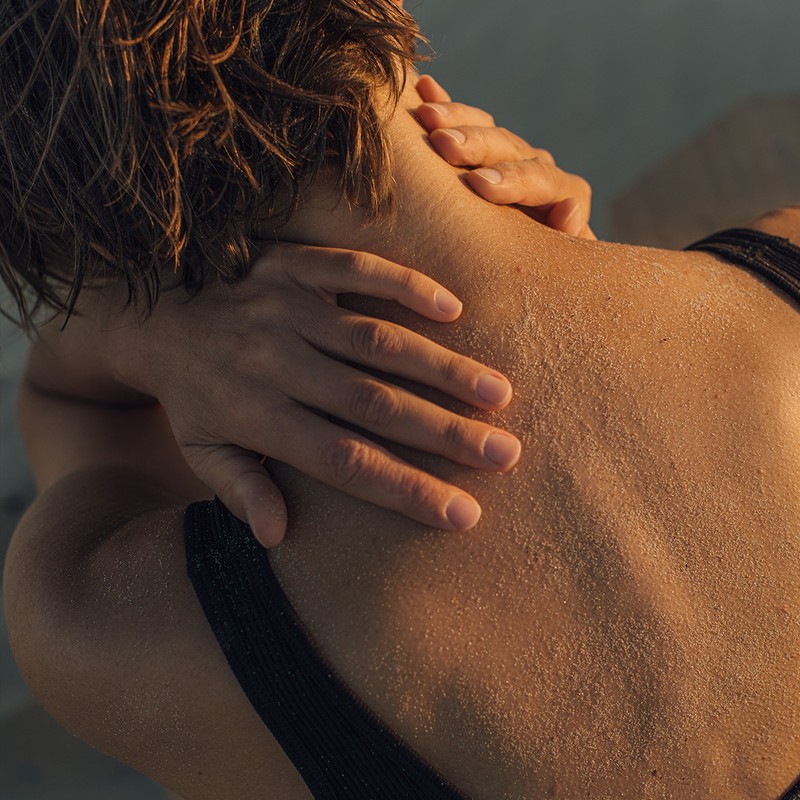
Beauty 101: Body Acne & How To Treat It
Body Acne Has No Single Cause
“Body acne is a skin condition that can affect anyone, of any age, but it’s most common among teenagers and pregnant women,” says skincare expert, Dr Rekha Tailor. “Body acne can be caused by hormones, but it’s also often hereditary. A common misconception is that it’s caused by eating chocolate, greasy foods or being dirty, however none of these are true.” Consultant dermatologist at skin55 and author of The Skincare Bible, Dr Anjali Mahto agrees: “It’s a complex interplay between hormones, genetics, excess sebum or oil production, and bacteria that can create inflammation on the skin’s surface. The face, chest and back are all common sites for acne as these areas have the highest density of oil glands.”
Sweat & Friction Can Make It Worse
“Acne forms in the same way on the body as it does on the face,” says Dr Rekha. “However, the key difference is that the skin of the body is tougher and less flexible around the pores. We have pores all over our bodies but they’re more noticeable on our faces, where the sebaceous glands are bigger. Like the face, the upper half of the body has many sebaceous glands, which is why body acne is often on the chest and back. Aside from the location of the acne, body breakouts are often caused by sweat and can be exacerbated by clothes rubbing against the skin. This creates an inflamed environment which makes breakouts and red patches worse.” Dr Anjali adds: “Heat, sweat and occlusion from tight-fitting lycra sports bras can create spots at this site. One way of reducing this is to limit ‘athleisure’ wear and ensure you shower immediately after any exercise or heavy sweating. Swap out your tops where possible after your workout and change your bed sheets regularly.”
Luckily, It Can Be Treated
“There are many things that can be done to treat acne on the body,” says Dr Rekha. “While it’s not caused by diet and lifestyle alone, these factors can affect the skin dramatically. That’s why it’s key to eat a healthy, balanced diet, drink plenty of water and cut out too much caffeine or sugar – all of this can have a significant impact on your skin overall. Secondly, it’s key you control the oil production in your skin, as well as effectively remove dead cells. To do this, you should make sure the skincare you use on your body is oil-free. Avoid using serums that have essential oils inside, too, these will only make acne worse. Look for cleansers and body washes which are non-foaming – foam tends to stimulate oil production. These simple steps will prevent your pores becoming blocked and keep everything smoother and free of excess sebum.” Dr Anjali adds: “Try using pre-soaked pads or toners that contain salicylic acid to wipe down the affected area. This will help reduce the blockage of pores. It’s worth avoiding thick, heavy-textured moisturisers though, as these can further block pores. Instead, opt for light, gel textures or lotions. Failing this, it’s worth seeking medical attention from your GP or dermatologist, who can prescribe creams or even tablets depending on the extent and severity of the problem.”
Certain Ingredients Will Work Better
“Topical retinoids work well on the body,” continues Dr Rekha. “These work by removing the dead skin cells on the surface, in turn, improving cell turnover to prevent dirt building up in hair follicles. Likewise, azeliac acid is an effective treatment for both mild hormonal and cystic acne – be it on the face or body. Products that contain this will help to reduce swelling and inflammation, as well as unblock pores, killing off any bacteria. Best of all, the latter is considered safe to use in pregnancy, unlike retinol, so it gives those suffering with pregnancy-related acne a solution.” Dr Anjali adds: “If you can’t afford to invest in an abundance of new products, it’s worth noting that most face washes made for acne-prone skin can be used on the back too.”
Scratching Is A No-No
“If you want to prevent body acne from spreading, it’s best you don’t touch or scratch it,” says Dr Rekha. “Doing this will only spread the bacteria that causes acne. It’s paramount you keep the area as clean as you possibly can and also wear clothes that allow your skin to breathe, including natural cotton fibres. While scratching is a no-go, you can gently exfoliate the body with chemical exfoliators. This is better than body brushing, as often people overdo it and traumatise the skin. Look for chemical exfoliators that contain glycolic, lactic, malic and salicylic acid to break down bacteria and dead cells. Ideally, you would use an exfoliator two to three times a week to really see the benefits.”
Fragranced Products Are To Be Avoided
“If you want to prevent body acne worsening, steer clear of fragranced products too,” explains Dr Rekha. “Often, anything with fragrance in is too oily for the skin, exacerbating the problem of too much sebum. You want to keep everything non-comodegenic and oil-free – just like you would with make-up if you’re an acne sufferer.”
Finally, It Could Be Worth Asking For Professional Advice
“If you feel you’ve tried every product and remedy under the sun without seeing results, don’t be afraid to seek out professional advice,” recommends Dr Anjali. “It can affect your self-esteem as it may leave behind some scarring, so it’s important to find medical help early – you do not need to suffer in silence. Just like the face, it’s treatable and can be prevented, so don’t lose hope.” Dr Rekha agrees: “Book a consultation with your medical practitioner who will be able to prescribe you a suitable treatment plan, often combined with treatments like laser therapy. The combined oral contraceptive pill can help, too, but each patient must be treated on an individual basis.”
Shop The Expert's Picks Of Body Acne Battling Products Below...
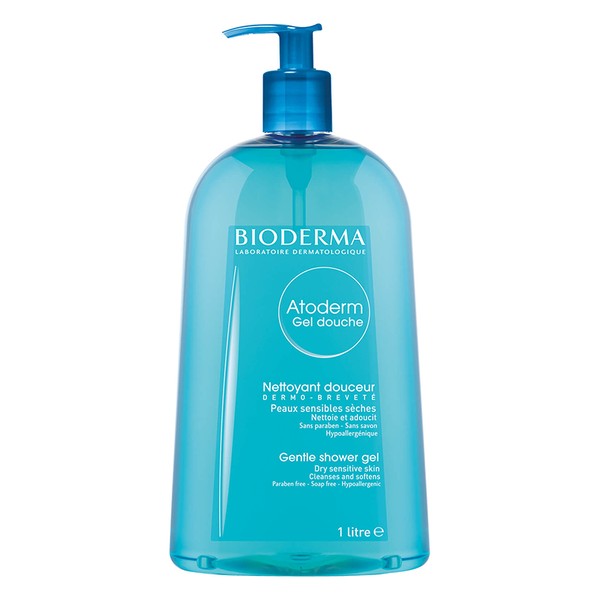
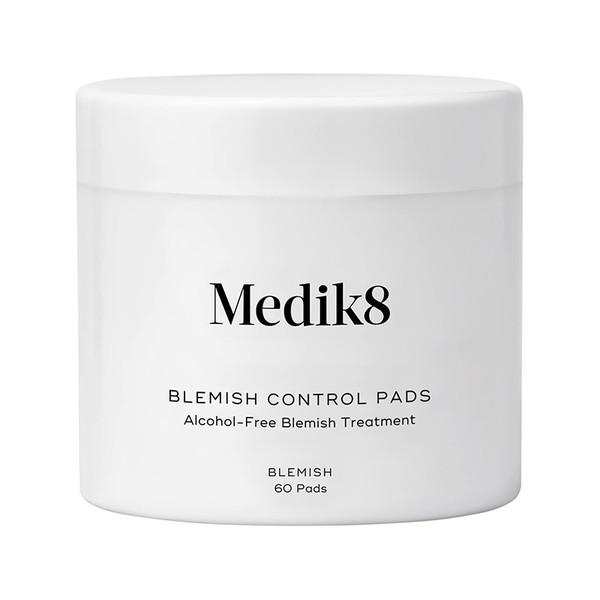
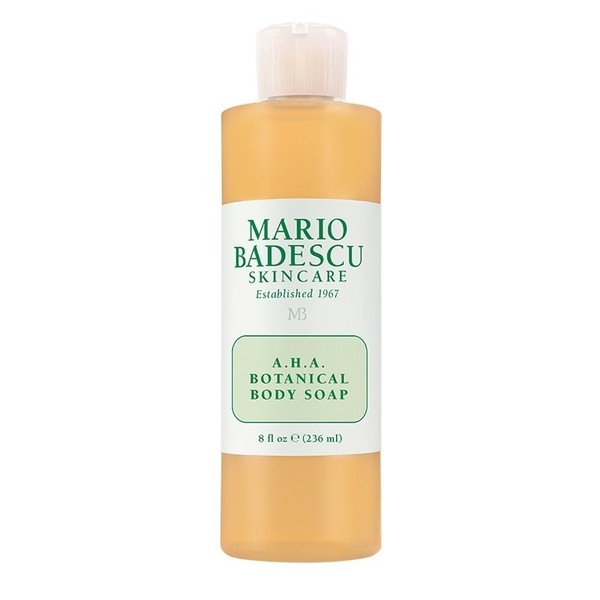
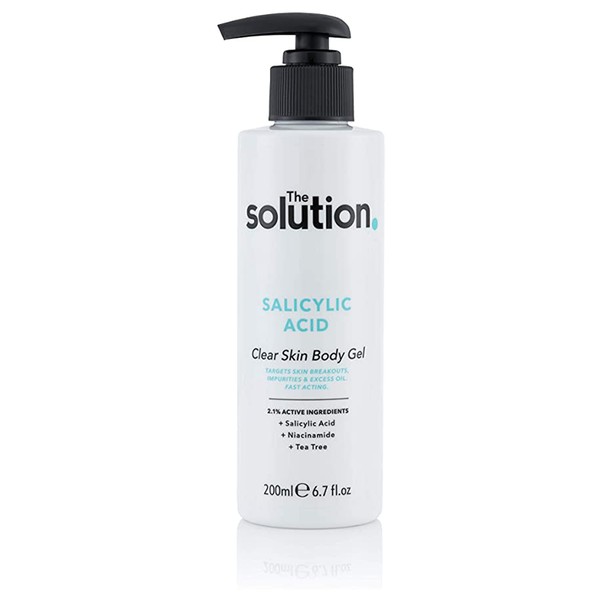
DISCLAIMER: Features published by SheerLuxe are not intended to treat, diagnose, cure or prevent any disease. Always seek the advice of your GP or another qualified healthcare provider for any questions you have regarding a medical condition, and before undertaking any diet, exercise or other health-related programme.
CREDITS: OLGA MOREIRA/STOCKSY UNITED
DISCLAIMER: We endeavour to always credit the correct original source of every image we use. If you think a credit may be incorrect, please contact us at info@sheerluxe.com.

